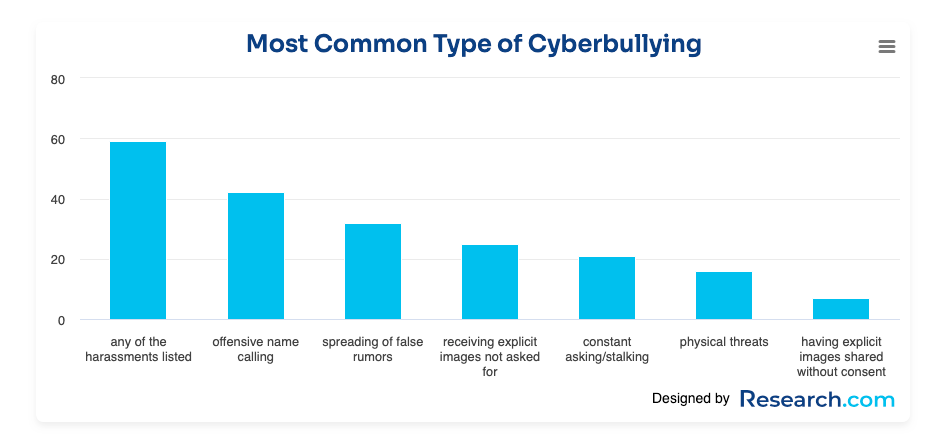Bullying Epidemic: It Doesn't Take A Break When Schools Are On Holiday
a Learn4Life feature
It used to be that kids could temporarily escape their bullies on the weekends and during school holidays. But with social media, texts and emails, cyberbullying (not a new concept) can happen anytime and anywhere. Unlike in-person bullying, name-calling, spreading rumors or sending embarrassing pictures through text messages or social media can reach students in other schools, and in different cities or states.
As a result, cyber-bullying has become even more pervasive than the traditional in-person bullying adult parents grew up with or we’ve typically seen in popular mainstream conceptions of bullying. As the Cyberbullying Research Center discovered across more than a dozen studies, lifetime cyberbullying victimization rates have skyrocketed since 2007 …
It Is That Bad
The prevalence is growing among both children and adults. However, there is greater fear of what this means for younger people, particularly in an age when social media and digital tool use is ubiquitous despite low levels of digital literacy as a means to adapt. In terms of the prevalence of cyberbullying, Security.org found …
According to our cyberbullying research, in which we studied parents of kids between the ages of 10 and 18, 21 percent of parents claimed that their children have been cyberbullied.
56 percent of these reports occurred from January to July 2020. We believe this increase correlates with the increased time spent online during COVID-19 lockdowns.
Cyberbullying affects more than just kids. In a 2020 study, it was found that 44 percent of all internet users in the U.S. have experienced harassment online, which can be considered a type of cyberbullying. The most common type of online harassment was name-calling, making up 37 percent of all harassment.
The most common types of bullying, according to Research.com, include …
And their occurring most frequently on these platforms …
When bullies use their phones and other digital devices to threaten, embarrass or harass others, it can be challenging for school counselors to intervene. This is exacerbated by the fact that “nearly half” of all American teens are online in some form “almost constantly” according to the most recent Pew Research Center survey of U.S. teens ages 13 to 17 conducted Sept. 18-Oct. 10, 2024. Even more troubling is how that rate of usage is much higher among Black and Hispanic teens than it is for white teens at 53 percent, 58 percent and 37 percent, respectively …
“But we can take steps to help prevent cyberbullying by educating students on how to report issues of aggression and other negative behavior that happens on social media and gaming platforms,” said Jaspreet Kaur, school counselor coordinator at Learn4Life, a network of 80+ public high schools. “School counselors understand their state’s cyberbullying laws and can help schools create and enforce anti-cyberbullying policies that follow these laws.”
Beyond knowing a state’s bullying laws - which are readily accessible through a map provided by the Cyberbullying Research Center - here are some tips offered by Kaur and other experts on how to effectively respond to cyberbullying.
Don’t Respond To Or Forward Cyberbullying Messages
Block the person who is cyberbullying and document the online attacks. Record the dates, times and descriptions, and save and print screenshots, emails and texts. Use this evidence to report cyberbullying to web and cell phone service providers and social media sites.
Schools Can Help Improve Students’ Social Emotional Skills
Digital literacy and online coping skills are absolutely critical. This can be done with programs that promote school-wide social-emotional learning. Kaur said Learn4Life, for example, places a huge emphasis on helping teens build resiliency to cope with bullies and develop empathy for others to prevent bullying.
Utilize Privacy Settings
Understand what measures you can take to keep content private on the websites you use. On most social networking sites, you can adjust your settings so that only the people you select are able to see your personal information and posts. It’s important to check these privacy settings frequently, because sites sometimes change their policies.
Think Before You Post
Never forget that the internet is public. What you put out there can never be erased. If you wouldn’t say something in a room full of strangers, don’t say it online. Keep personal information personal. Don’t reveal identifying details about yourself like address, phone number, school, credit card number, etc.
Speak Out
If a friend is being cyberbullied, don’t stand by and do nothing. Talk to them and seek help from a trusted adult. Your support may be just what the victim needs to overcome the problem. Never go through it in silence or isolate yourself, lean on support at school if needed.
“Schools must ensure they can provide a safe, caring environment so that students can attain the necessary mindsets and behaviors to advance their academic achievement,” Kaur added.









